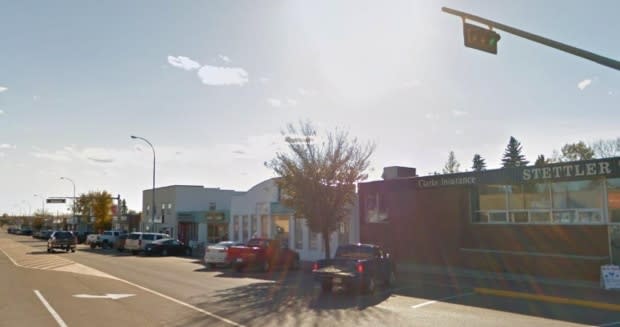More rural communities say tax break for oil and gas firms could doom small Alberta towns
More rural municipalities are warning that a plan to reconsider how much natural resource companies pay in property taxes could have a severe impact on local budgets — making it difficult for some communities to survive.
The proposed changes, which emerged out of a provincial review, have already led to a number of rural councils voicing their consternation.
Larry Clarke, reeve of Stettler County, said his county is expecting to lose 20 per cent of its tax revenue should the changes proceed.
"We are what holds the rural area and the oilfield together," Clarke said. "People need to recognize that we need money to do that."

Similar concerns were shared by Steve Wannstrom, reeve of Starland County, located north of Drumheller.
Wannstrom said that based on the information he has, the numbers proposed would "break Starland."
"I don't know how we would survive. You could implement 200 per cent tax increases to all the farmers and residents, and that's not going to solve the problem," he said.
"They want to bring more business to rural Alberta — we have two solar projects, a wind project and an agri-tourism project that want to go in this county.
"[If we] raise the taxes 200 per cent, do you think they're going to want to stay here? No, they're long gone."
The community of Wainwright, located southeast of Edmonton, is poised to lose between 22 and 30 per cent of its total tax revenue should the changes proceed, according to a letter released by the town council.
"This draconian change to the assessment model will force municipalities to enact a reduction in service levels and intermunicipal collaboration agreements, as the above increases are not realistic for our ratepayers," the letter reads.
"The changes will not only impact our municipality, but the entire region."
No decisions yet
Timothy Gerwing, press secretary for Municipal Affairs Minister Kaycee Madu, said in a statement that no decisions are final at this time.
"There is an ongoing debate between industry and municipalities about whether taxes are too high on oil and gas properties. Reviews of this kind are supposed to take place every three to five years," Gerwing said.
"A careful balance has to be found to ensure both sides are strong and viable. Government has been consulting on this matter and will continue to do so into the fall."
But Al Kemmere, president of the Rural Municipalities of Alberta, said that four scenarios created by the province and the oil and gas industry suggest a number of bleak outcomes.
"The impact of it is so detrimental to so many of our members," Kemmere said. "[It's] millions and millions of dollars that our members are going to be out if this consultation goes forward with [these] four options."

